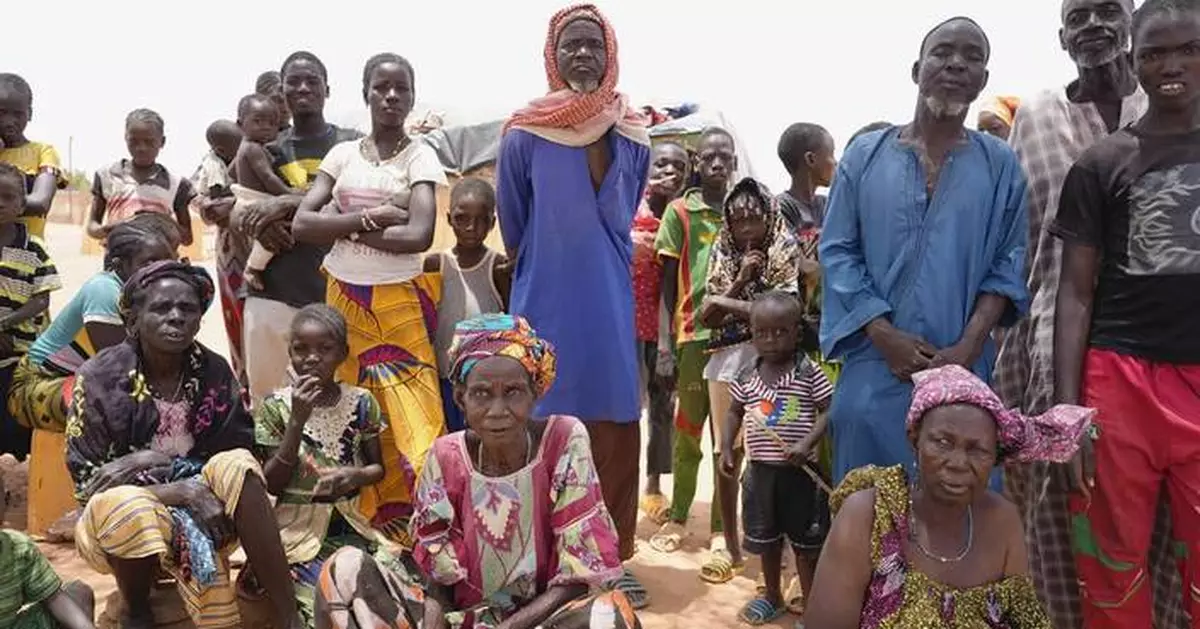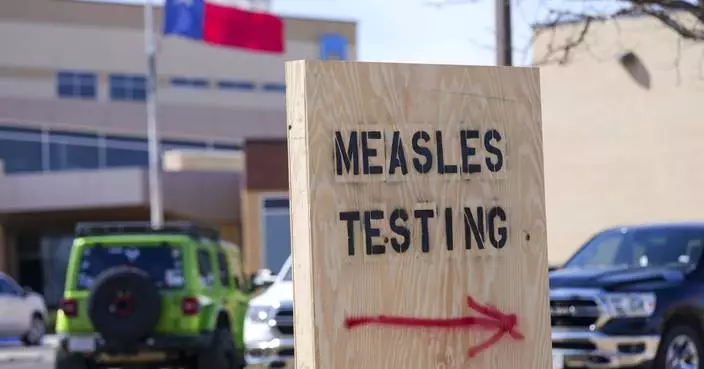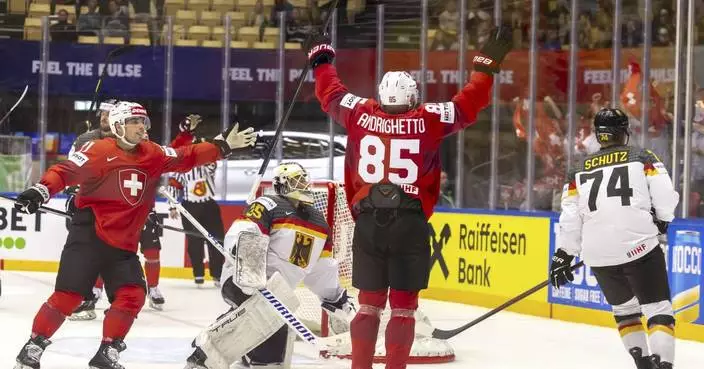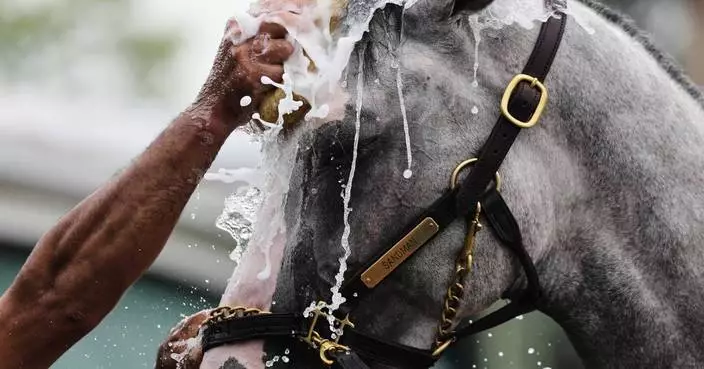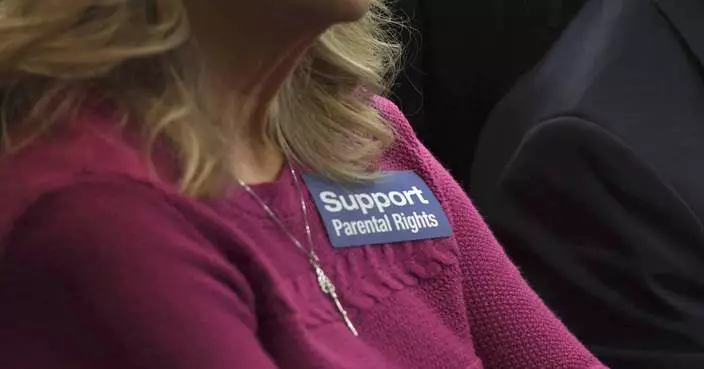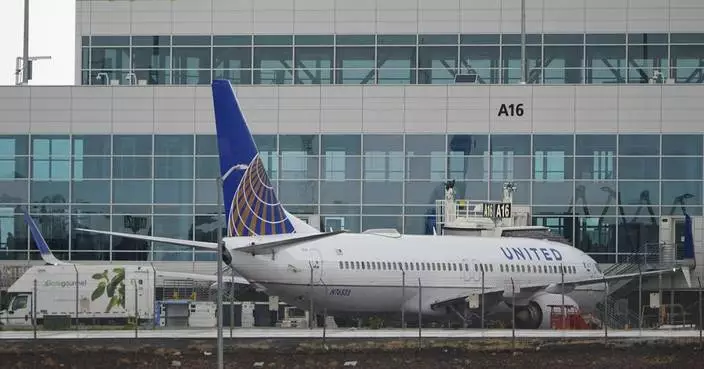OUAGADOUGOU, Burkina Faso (AP) — Their loved ones were slaughtered by Islamic extremists or government-affiliated fighters. Their villages were attacked, their homes destroyed. Exhausted and traumatized, they fled in search of safety, food and shelter.
This is the reality for over 2.1 million displaced people across the West African nation of Burkina Faso, torn apart by years of extreme violence.
Click to Gallery
FILE - People ride their scooters in the Gounghin district of Ouagadougou, Burkina Faso, Jan. 26, 2022. (AP Photo/Sophie Garcia, File)
FILE - A mural reading "Stay vigilant and mobilized" is seen in Ouagadougou, Burkina Faso, March 1, 2023. (AP Photo, File)
FILE - An aerial view shows a camp of internally displaced people in Djibo, Burkina Faso, May 26, 2022. (AP Photo/Sam Mednick, File)
FILE - Burkina Faso junta leader Ibrahim Traore participates in a ceremony in Ouagadougou, Burkina Faso, Oct. 15, 2022. (AP Photo/Kilaye Bationo, File)
FILE - Internally displaced people wait for aid in Djibo, Burkina Faso, May 26, 2022, when violence linked to al-Qaida and the Islamic State group began surging and spreading across the West African nation. (AP Photo/Sam Mednick, File)
But unlike others displaced in the region, they are seen as a challenge to Burkina Faso's military junta that took power two years ago on the pledge of bringing stability. Their existence contradicts its official narrative: that security is improving and people are safely returning home.
Those who fled to Ouagadougou, the capital, which has been shielded from violence, find fear instead of respite. They are made into shadows, with many resorting to begging. Most of them are not entitled to support from authorities, and international aid organizations are not authorized to work with them.
The Associated Press reached out to several international aid groups, Western diplomats and the United Nations. None would speak on the record about the issue.
With no official displacement sites in Ouagadougou, no one knows how many people shelter in the capital or sleep on the streets. A rare acknowledgement of their existence by authorities noted 30,000 last year.
But aid groups say real numbers are much higher. And as violence increases, and people crowd displacement sites in the country's remote north and east, exposed to hunger and disease, more are expected to arrive in the capital.
One aid worker, speaking like others on condition of anonymity for fear of retaliation, described the situation as “a ticking bomb.”
The AP interviewed four displaced people in Ouagadougou. All spoke at great risk. Three are with the Fulani ethnic group, which authorities accuse of being affiliated with Islamic insurgents. All three said they have faced discrimination in the capital, with trouble finding jobs and sending children to school.
For decades, the Fulani were neglected by the central government, and some did join miitants. As a result, Fulani civilians are often targeted both by the extremists — affiliated with al-Qaida or the Islamic State group — and by rival pro-government forces.
A 27-year-old Fulani cattle trader from Djibo, a city besieged by armed groups since 2022, who spoke on condition of anonymity for fear of repercussions from authorities, said government-affiliated forces indiscriminately treated all Fulani in the area as extremists.
“They started arresting people, bringing them to the city, beating them, undressing them. It was humiliating," he said. His uncle spent seven months in prison because he received aid from a charity run by extremists in part to spread their ideology.
He said he was arrested once in Djibo and beaten by the military, with injuries so extensive that he went to the hospital. He said soldiers told him only that they were “conducting a security operation.”
According to analysts, the junta's strategy of military escalation, including mass recruitment of civilians for poorly trained militia units, has exacerbated tensions between ethnic groups. Data gathered by the Armed Conflict Location and Event Data Project show that militia attacks on civilians significantly increased since Capt. Ibrahim Traore took power.
The violence has radicalized some Fulanis, the cattle trader said.
“Every day, you prayed to live through the next 24 hours," he said. “This is not a life.”
He did not want to flee and leave his parents behind. But one day, his father woke him and said: “You have to leave, because if you stay, someone will just come and kill you.”
His father was later killed.
He left in a military convoy over a year ago. Life in Ouagadougou is “very difficult,” he said. He lives with extended family and relies on odd jobs to get by.
“There are mornings when I wake up and ask myself how will I get something to eat,” he said. “I used to live with dignity.”
His mother has joined him in the capital. They have not received support from the government.
A 28-year-old mother from the northwest, who also spoke on condition of anonymity, said at first the extremists came to her village and stole cattle. But last summer, they came to the market and killed several men, including her husband. Then they ordered women and children to leave.
She grabbed her children, and cooking pots, and fled. She walked for hours through the night until she reached her husband’s family home.
Ten days later, armed men were approaching. She strapped her 2-year-old daughter to her back, grabbed her 4-year-old son and left for the capital.
She said she has not received government support in Ouagadougou. She was promised a job as a cleaner but lost the offer once the employer found out she was Fulani.
She secured a place at a rare shelter for displaced women, run with Western-supplied funds by a local activist who tries to keep a low profile. She is learning how to sew and has enrolled her son in school.
“I miss my village,” she said. “But for the moment I have to wait until the violence is over.”
Her stay is precarious. The shelter is full, hosting 50 women and children. Usually, they are allowed to stay for one year. Time is running out.
The demand is enormous, the activist said, and there is less and less aid. Local authorities are wary of anyone working with displaced people.
“I don’t know for how much longer I can keep on going,” she said.
As much as 80% of Burkina Faso's territory is controlled by extremist groups and more civilians died from violence last year than in the years before, but in Ouagadougou, it is easy to forget that the government is battling an insurgency.
Busy open-air restaurants serve beer and the national dish of slowly roasted chicken. In recent months, the capital hosted a theater festival and an international arts and crafts fair. The authorities reinstated a cross-country cycling race, Tour de Faso, previously cancelled due to insecurity.
The military leadership has installed a system of de facto censorship, rights groups said, and those daring to speak up can be openly abducted, imprisoned or forcefully drafted into the army.
Burkina Faso used to be known for its vibrant intellectual life. Now, even friends are afraid to discuss politics.
“I feel like I am in prison,” said a local women’s rights activist. “Everyone distrusts each other. We fought for the freedom of speech, and now we lost everything.”
Burkina Faso's authorities did not respond to questions.
This story corrects the number of the displaced.
The Associated Press receives financial support for global health and development coverage in Africa from the Gates Foundation. The AP is solely responsible for all content. Find AP’s standards for working with philanthropies, a list of supporters and funded coverage areas at AP.org.
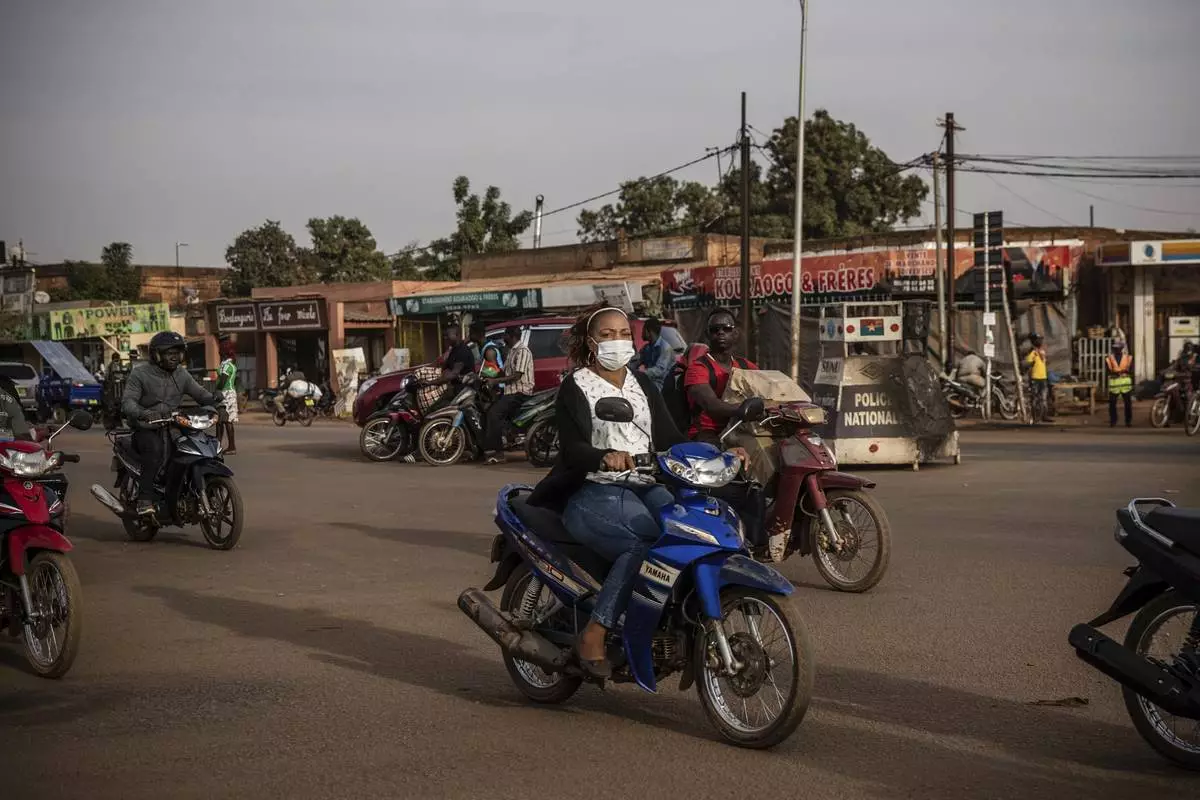
FILE - People ride their scooters in the Gounghin district of Ouagadougou, Burkina Faso, Jan. 26, 2022. (AP Photo/Sophie Garcia, File)
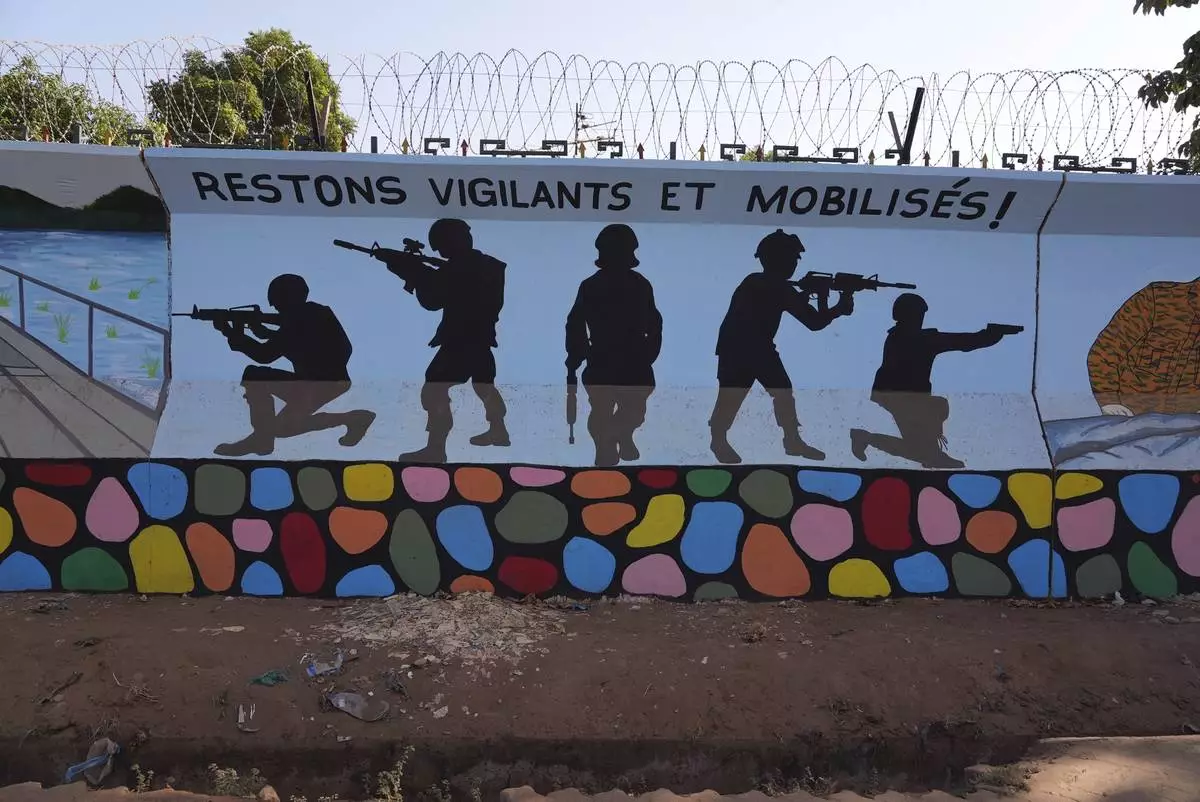
FILE - A mural reading "Stay vigilant and mobilized" is seen in Ouagadougou, Burkina Faso, March 1, 2023. (AP Photo, File)
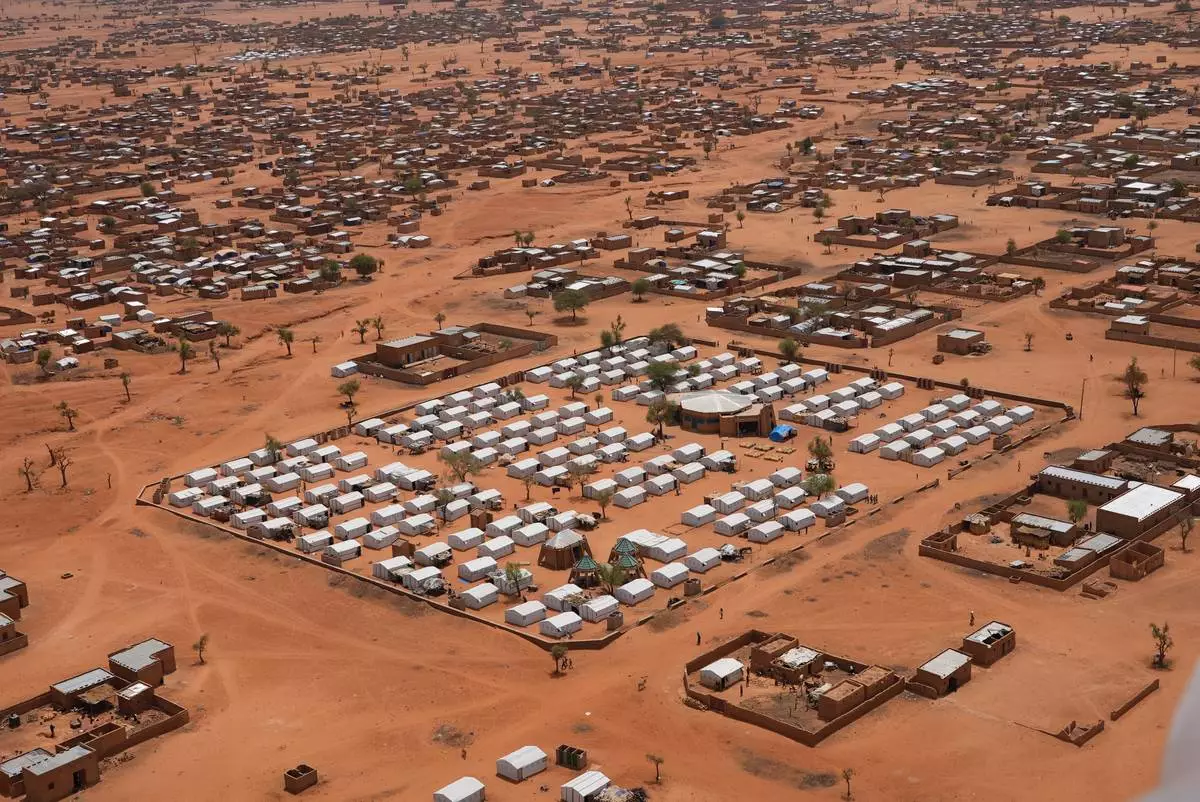
FILE - An aerial view shows a camp of internally displaced people in Djibo, Burkina Faso, May 26, 2022. (AP Photo/Sam Mednick, File)
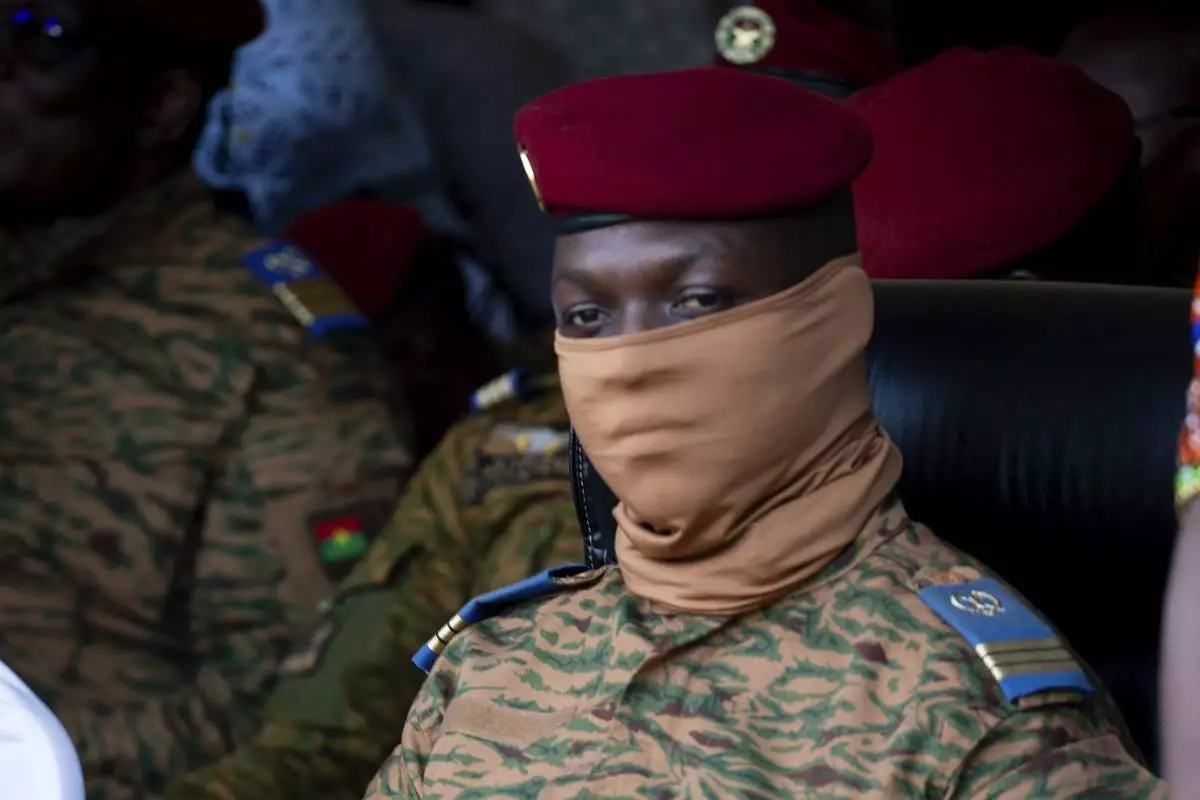
FILE - Burkina Faso junta leader Ibrahim Traore participates in a ceremony in Ouagadougou, Burkina Faso, Oct. 15, 2022. (AP Photo/Kilaye Bationo, File)
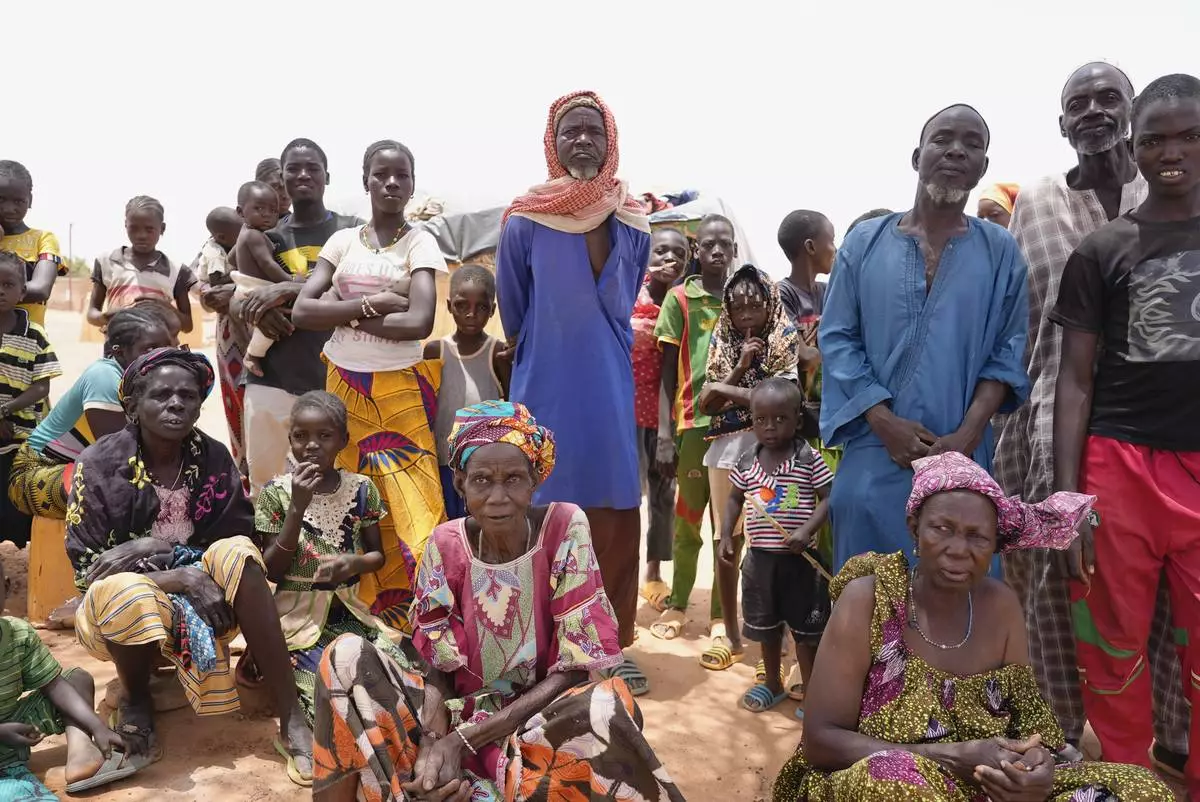
FILE - Internally displaced people wait for aid in Djibo, Burkina Faso, May 26, 2022, when violence linked to al-Qaida and the Islamic State group began surging and spreading across the West African nation. (AP Photo/Sam Mednick, File)
ANKARA, Turkey (AP) — Russia and Ukraine are set to hold their first direct peace talks in three years, both countries said Thursday, but hopes for a breakthrough remained dim after Russian President Vladimir Putin spurned an offer by Ukrainian President Volodymyr Zelenskyy to meet face-to-face in Turkey.
Zelenskyy said he is sending a team headed by his defense minister from the Turkish capital Ankara to Istanbul to meet a Russian delegation, even though Moscow's side doesn’t include “anyone who actually makes decisions.”
The Ukrainian side would be headed by Defense Minister Rustem Umerov, and its aim is “to attempt at least the first steps toward de-escalation, the first steps toward ending the war — namely, a ceasefire,” he said.
Few had expected Putin to show up in Turkey, and his absence punctured any hope of significant progress toward ending the 3-year-old war amid peace efforts in recent months by the Trump administration and Western European leaders. It also raised the prospect of intensified international sanctions on Russia that have been threatened by the West.
Zelenskyy, who flew Thursday to Ankara after challenging Putin to sit down with him, accused Moscow of not making a serious effort to end the war by sending a low-level negotiating team that he described as “a theater prop.”
His proposal to Putin came amid a flurry of maneuvering last weekend as each side sought a diplomatic advantage.
Zelenskyy said he decided to send the delegation to Istanbul to demonstrate to U.S. President Donald Trump that Ukraine wants to end the fighting.
The war has killed tens of thousands of soldiers on both sides and more than 12,000 Ukrainian civilians, according to the U.N. Russian forces are preparing a fresh military offensive, Ukrainian government and Western military analysts say.
At least five civilians were killed and 29 wounded in the past day, according to authorities in five eastern regions of Ukraine where Russia is trying to advance.
The head of the Russian delegation, presidential aide Vladimir Medinsky, said in Istanbul that the representatives were ready to meet Ukrainian officials.
“The task of these direct negotiations with Ukraine is to establish long-term peace sooner or later by eliminating the root causes of this conflict,” he said in a brief statement.
It was not clear when they would meet. Medinsky said late Thursday that the Russian delegation would be waiting for Ukrainian officials at 10 a.m. Friday.
U.S. Secretary of State Marco Rubio said he would confer Friday in Istanbul with Turkish Foreign Minister Hakan Fidan and the Ukrainian delegation, adding that the Russian delegation would be meeting with other members of the U.S. team and that he hoped all sides could get together.
“We don’t have high expectations of what will happen tomorrow. And frankly, at this point, I think it’s abundantly clear that the only way we’re going to have a breakthrough here is between President Trump and President Putin,” Rubio told reporters in Antalya, Turkey, where he was attending a NATO foreign ministers meeting.
Turkish President Recep Tayyip Erdogan earlier welcomed Zelenskyy to the presidential palace in Ankara for their own talks. Zelenskyy heads Friday to Albania for a gathering of European officials.
The diplomatic maneuvering began Saturday when European leaders met Zelenskyy in Kyiv and urged the Kremlin to agree to a full, unconditional 30-day ceasefire as a first step toward peace. Putin responded early Sunday by proposing direct talks with Ukraine in Istanbul. Then came Zelenskyy's challenge to Putin for face-to-face talks.
After days of silence, Kremlin spokesman Dmitry Peskov finally said Thursday that Putin had no plans to travel to Istanbul in the next few days.
Trump said he was not surprised that Putin was a no-show. He had pressed for Putin and Zelenskyy to meet but brushed off the Kremlin leader’s decision not to attend.
“I didn’t think it was possible for Putin to go if I’m not there,” Trump told reporters in Doha, Qatar, on the third day of his visit to the Middle East.
Trump said a meeting between him and Putin was crucial to breaking the deadlock.
“I don’t believe anything’s going to happen whether you like it or not, until (Putin) and I get together,” he said on Air Force One while traveling from Doha to Abu Dhabi, the capital of the United Arab Emirates. “But we’re going to have to get it solved because too many people are dying.”
Peskov said Putin has no plans to meet with Trump in the coming days.
Medinsky, Putin's aide, is leading the Russian team that also includes three other senior officials, the Kremlin said. Putin also appointed four lower-level officials as “experts” for the talks in Istanbul.
Also absent from the talks were Russian Foreign Minister Sergey Lavrov and Putin’s foreign policy adviser Yuri Ushakov, both of whom represented Russia at talks with the U.S. in Saudi Arabia in March.
The top-level Ukrainian delegation included Umerov, Foreign Minister Andrii Sybiha and the head of the Ukrainian presidential office, Andriy Yermak, a Ukrainian official said. Zelenskyy will sit at the negotiating table only with Putin, said presidential adviser Mykhailo Podolyak.
Putin met Wednesday with senior government officials and members of the delegation in preparation for the talks, Peskov said. Defense Minister Andrei Belousov, General Staff chief Valery Gerasimov and National Security Council secretary Sergei Shoigu attended.
The Kremlin billed the Istanbul talks as a “restart” of peace negotiations held there in 2022 that quickly collapsed. Moscow accused Ukraine and the West of wanting to continue fighting, while Kyiv said Russia’s demands amounted to an ultimatum, not something both sides could agree on. That delegation also was also headed by Medinsky.
Putin's proposal came after more than three months of diplomacy kick-started by Trump, who promised during his campaign to end the war swiftly, although it's been hard to pull off. The Trump administration in recent weeks indicated it might walk away from the effort if there was no tangible progress soon.
Sybiha, the Ukrainian foreign minister, met with Rubio and Sen. Lindsey Graham on Wednesday night in Antalya.
Sybiha reaffirmed Ukraine’s support for Trump’s mediation efforts and thanked the U.S. for its continued involvement, urging Moscow to “reciprocate Ukraine’s constructive steps” toward peace. "So far, it has not,” Sybiha said.
On Thursday morning, Sybiha also met with other European foreign ministers, including his French counterpart, Jean-Noël Barrot, who in a post on X reiterated the call for a ceasefire and the threat of “massive sanctions” if Russia doesn't comply.
“We’re in a very difficult spot right now, and we hope that we can find the steps forward that provide for the end of this war in a negotiated way and the prevention of any war in the future," Rubio said Thursday.
British Prime Minister Keir Starmer accused Putin of “standing in the way of peace.”
“There was only one country that started this conflict — that was Russia. That was Putin. There’s only one country now standing in the way of peace — that is Russia. That is Putin,” he said in a visit to Tirana, Albania.
Barrot echoed that sentiment: “In front of Ukrainians, there is an empty chair, one that should have been occupied by Vladimir Putin,” he said. Putin "is dragging his feet and in all evidence does not want to enter into these peace discussions.”
Associated Press writers Lorne Cook in Brussels; Illia Novikov and Samya Kullab in Kyiv, Ukraine; Dasha Litvinova in Tallinn, Estonia; Aamer Madhani in Dubai, United Arab Emirates; and Matthew Lee in Antalya, Turkey, contributed to this report.
Follow AP’s coverage of the war in Ukraine at https://apnews.com/hub/russia-ukraine
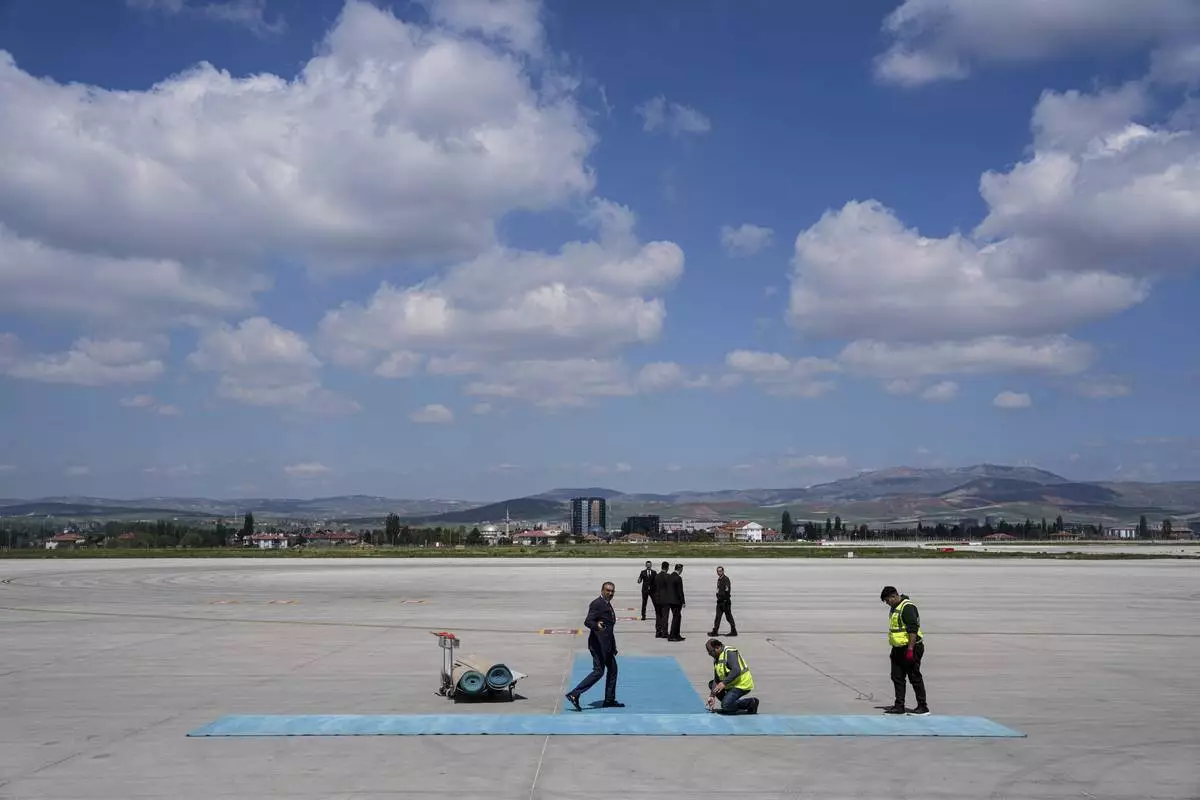
Airport workers prepare a carpet before arrival of Ukrainian President Volodymyr Zelenskyy at Esenboga airport in Ankara, Turkey, Thursday, May 15, 2025. (AP Photo/Evgeniy Maloletka)
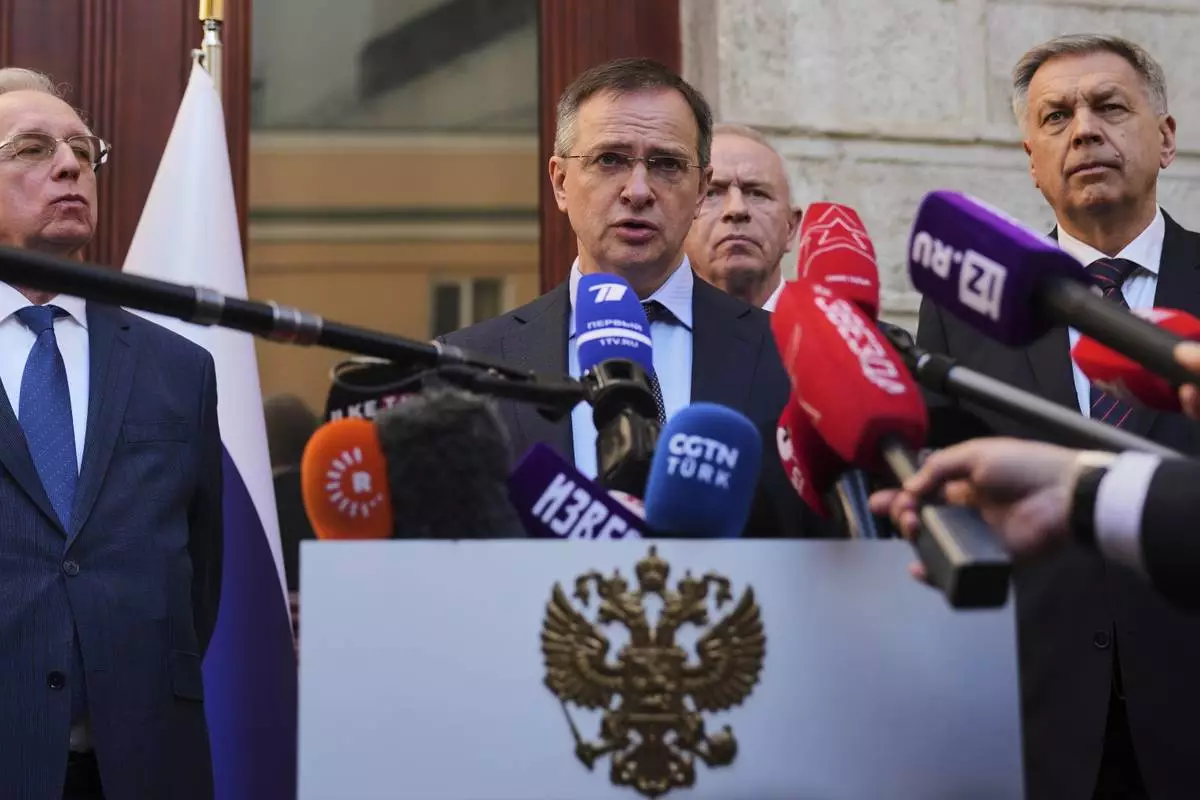
Russian presidential aide, Vladimir Medinsky, gives an statement to journalists at the Russian consulate in Istanbul, Turkey, Thursday, May 15, 2025. (AP Photo/Francisco Seco)

Ukrainian President Volodymyr Zelenskyy talks to journalists at the Ukrainian Embassy in Ankara, Turkey, Thursday, May 15, 2025. (AP Photo/Evgeniy Maloletka)
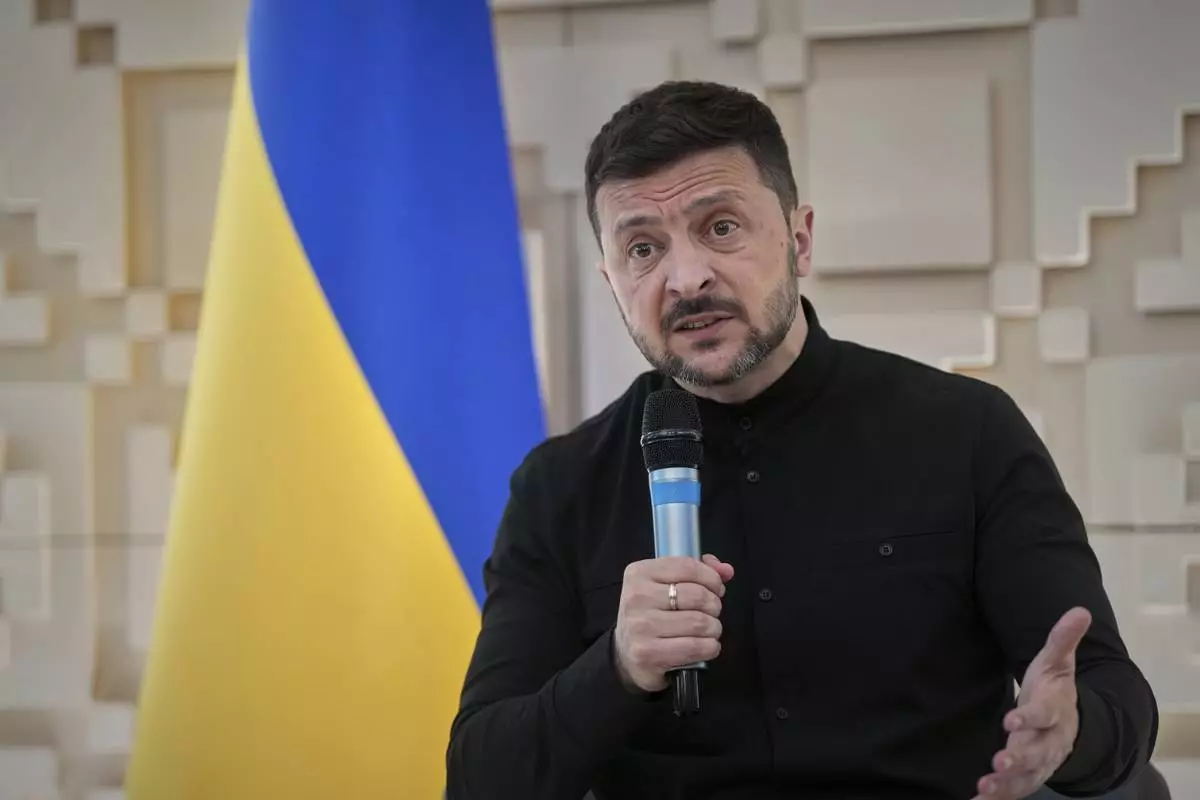
Ukrainian President Volodymyr Zelenskyy talks to journalists at the Ukrainian Embassy in Ankara, Turkey, Thursday, May 15, 2025. (AP Photo/Evgeniy Maloletka)
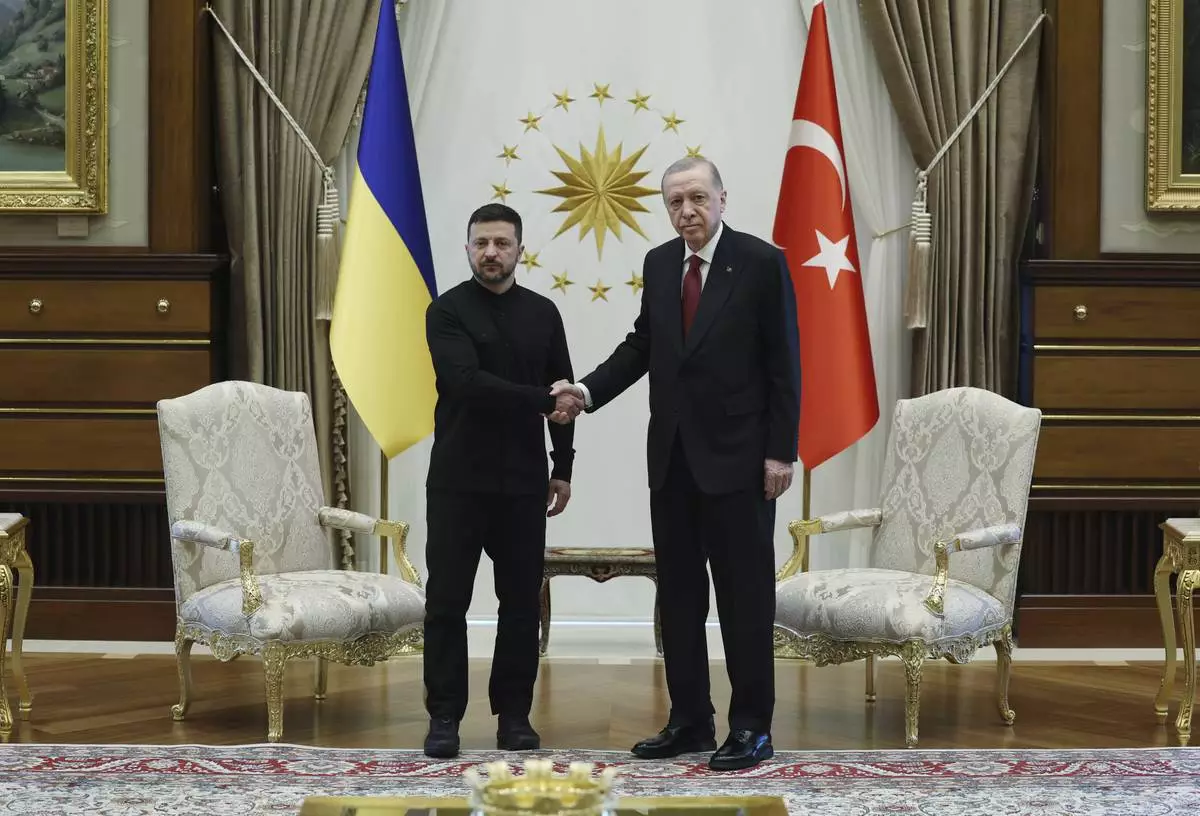
In this handout photo released by Turkish Presidency, Turkish President Recep Tayyip Erdogan, right, shakes hands with his Ukrainian counterpart Volodymyr Zelenskyy during their meeting at the Presidential palace in Ankara, Thursday, May 15, 2025. (Turkish Presidency via AP)
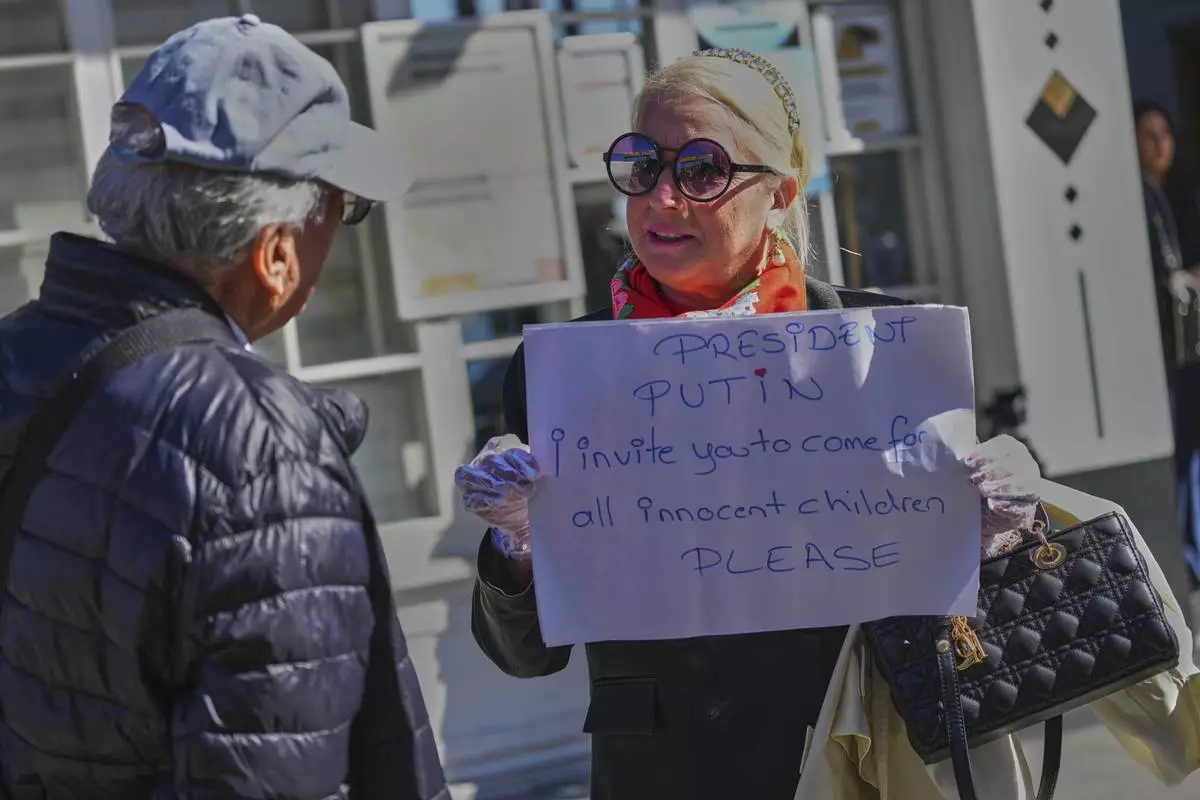
Ayse Sahil, whose family emigrated from Bolshevik in Russia, holds a board near Dolmabahce palace where talks between Russian and Ukrainian delegations are expected, in Istanbul, Turkey, Thursday, May 15, 2025. (AP Photo/Dilara Acikgoz)
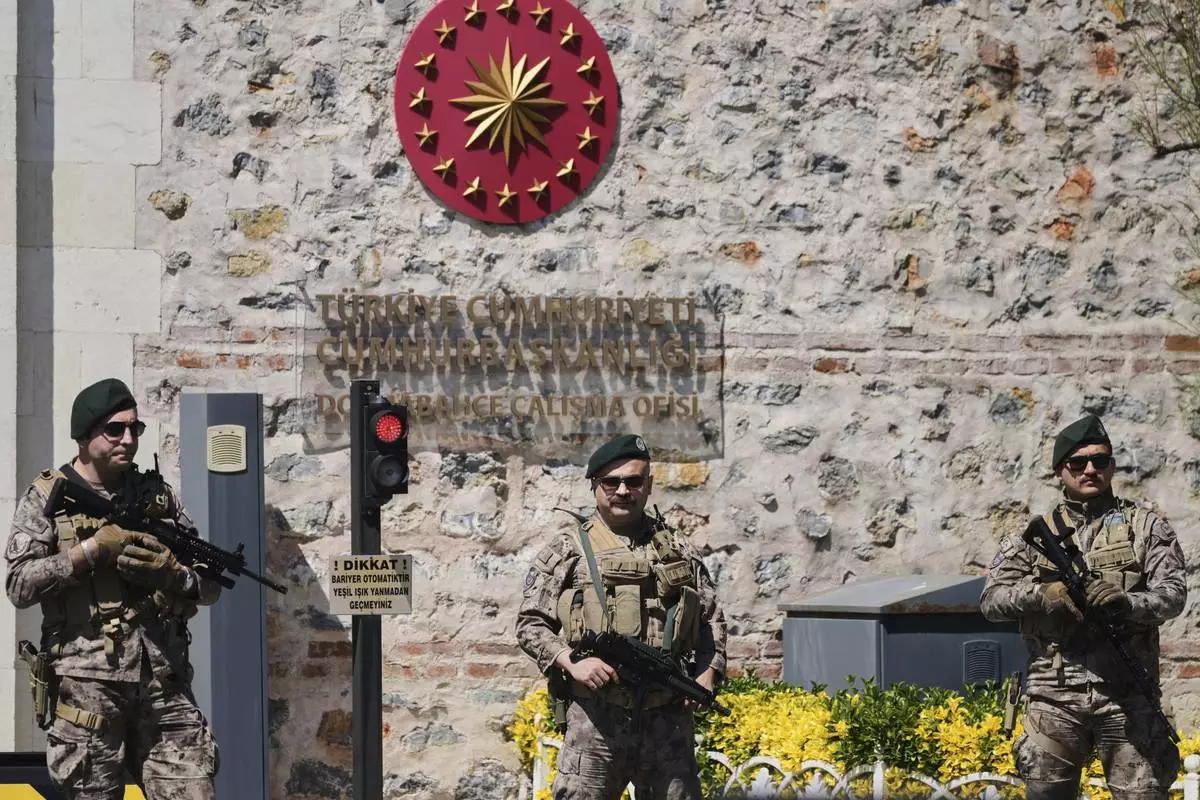
Turkish security members stand guard at Dolmabahce palace where talks between Russian and Ukrainian delegations are expected, in Istanbul, Turkey, Thursday, May 15, 2025. (AP Photo/Dilara Acikgoz)
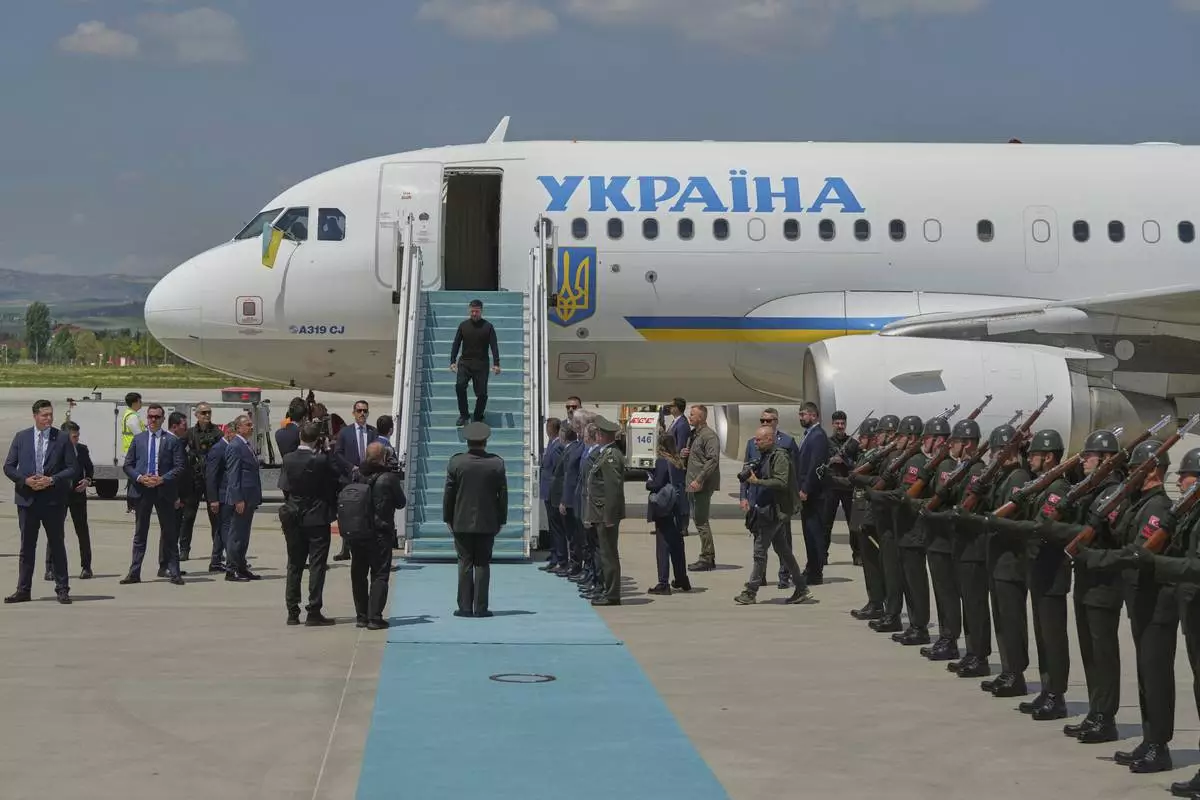
Ukrainian President Volodymyr Zelenskyy walks down the stairs from his plane upon his arrival at Esenboga airport in Ankara, Turkey, Thursday, May 15, 2025. (AP Photo/Evgeniy Maloletka)
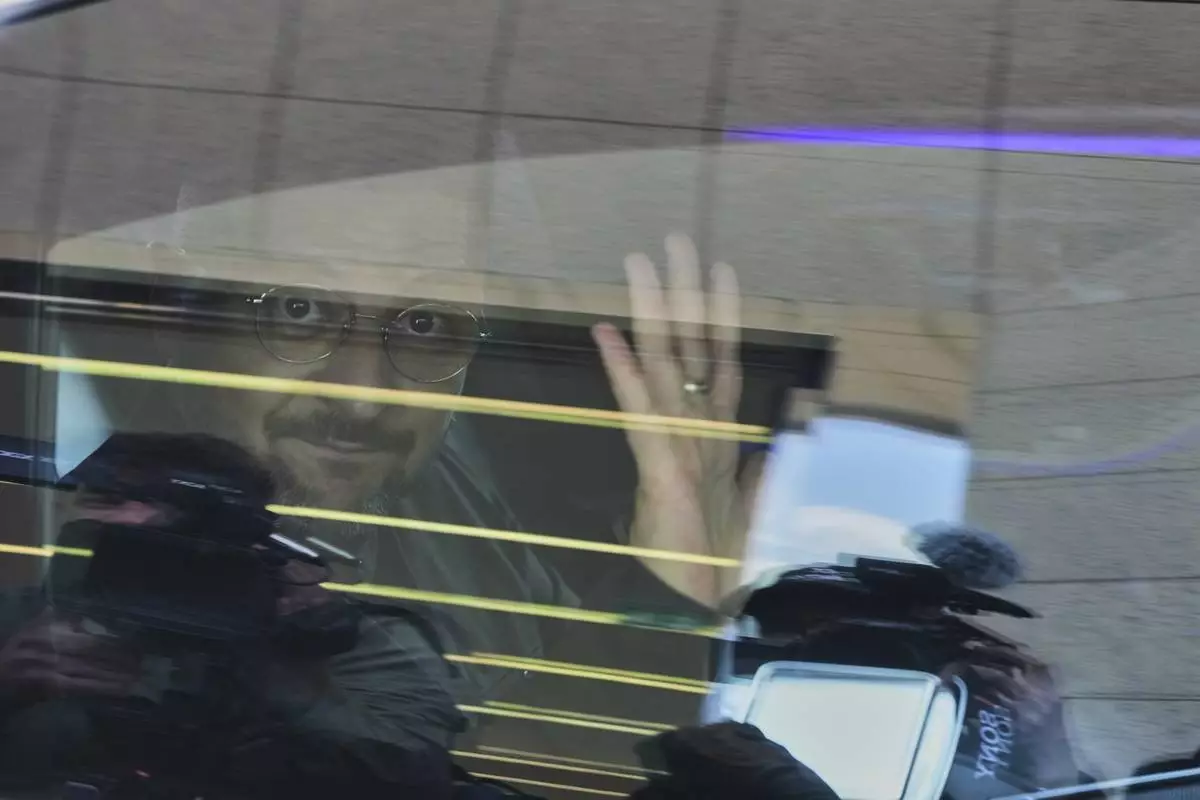
Ukrainian President Volodymyr Zelenskyy gestures to journalists as he leaves upon his arrival at Esenboga airport in Ankara, Turkey, Thursday, May 15, 2025. (AP Photo/Evgeniy Maloletka)
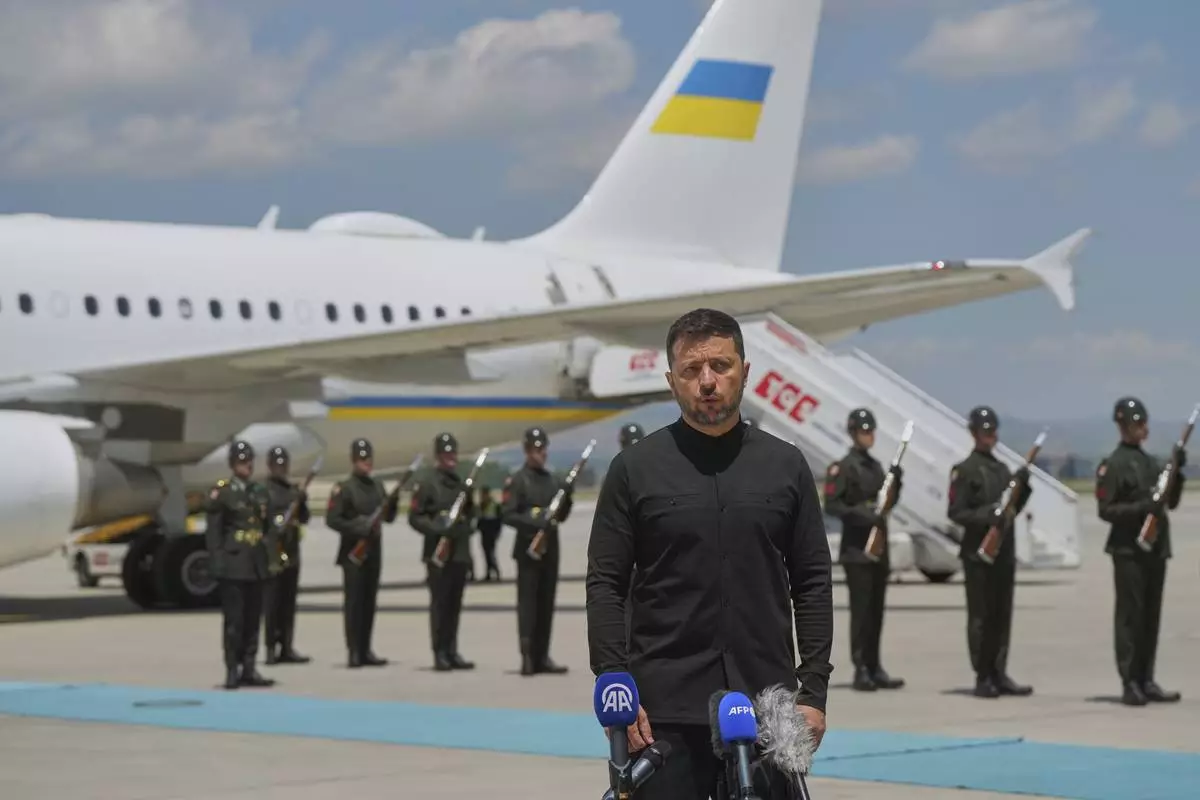
Ukrainian President Volodymyr Zelenskyy talks to journalists as he arrives at Esenboga airport in Ankara, Turkey, Thursday, May 15, 2025. (AP Photo/Evgeniy Maloletka)
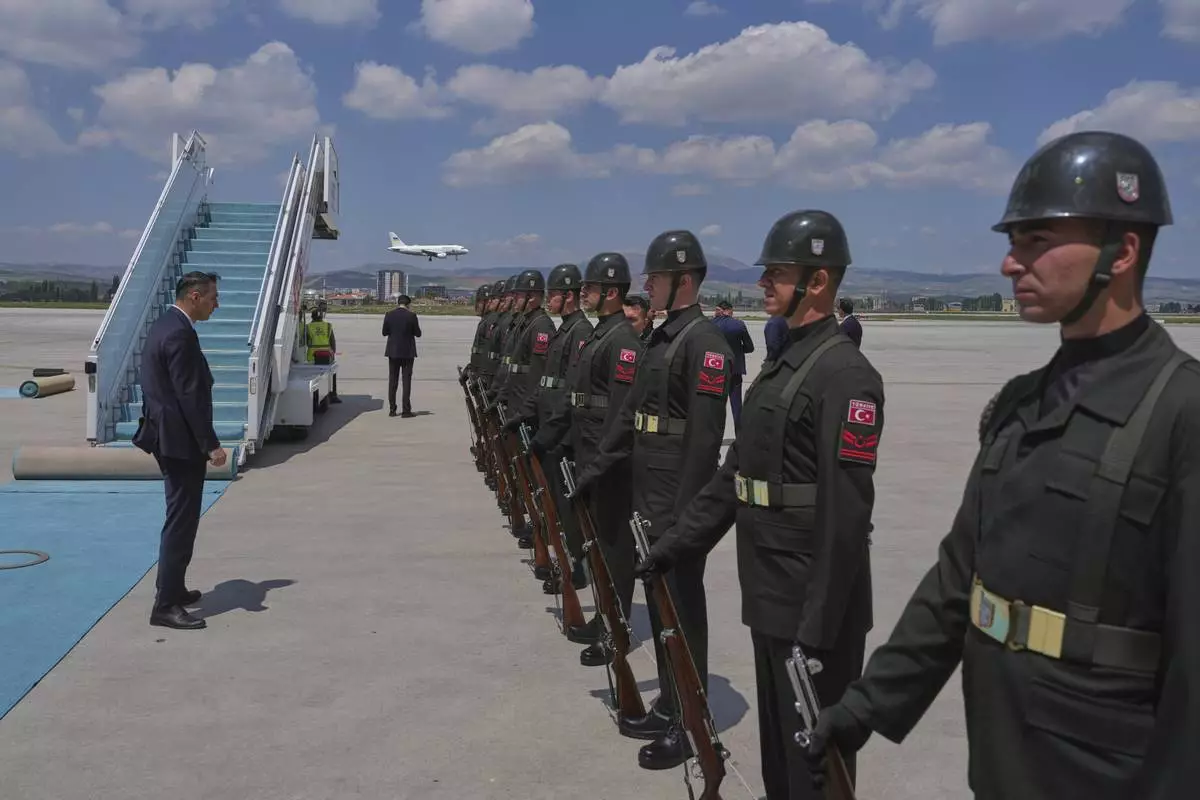
Ukrainian official plane, background, with Ukrainian President Volodymyr Zelenskyy on board lands at Esenboga airport in Ankara, Turkey, Thursday, May 15, 2025. (AP Photo/Evgeniy Maloletka)
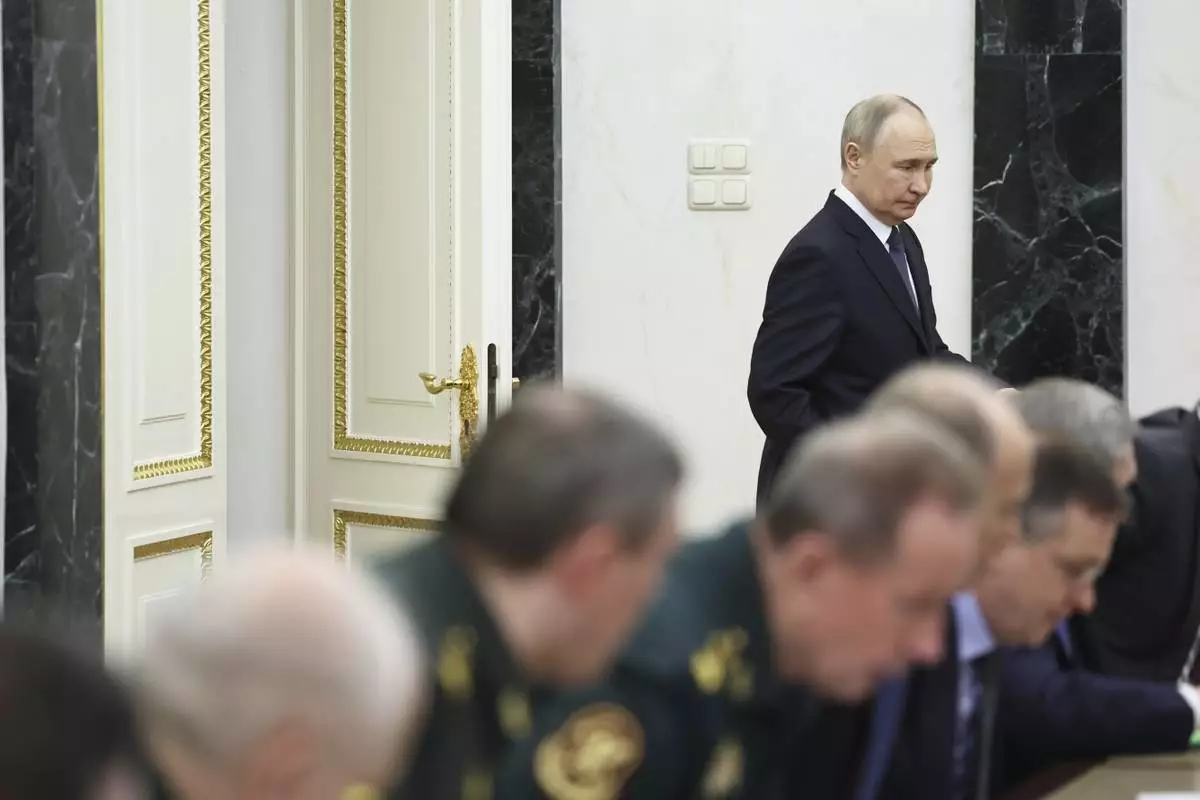
Russian President Vladimir Putin attends a meeting on forthcoming Russia-Ukraine talks in Istanbul, in Moscow, Russia, Wednesday, May 14, 2025. (Alexander Kazakov, Sputnik, Kremlin Pool Photo via AP)
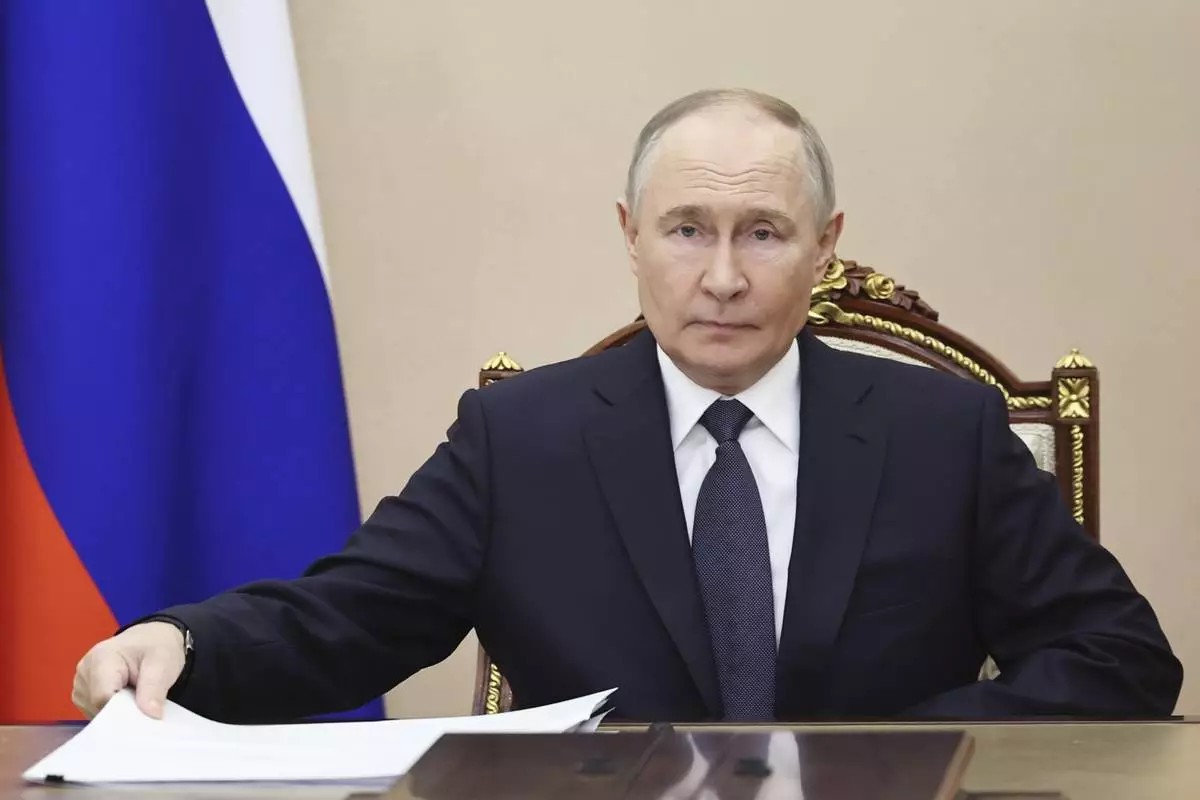
Russian President Vladimir Putin attends a meeting on forthcoming Russia-Ukraine talks in Istanbul, in Moscow, Russia, Wednesday, May 14, 2025. (Alexander Kazakov, Sputnik, Kremlin Pool Photo via AP)







